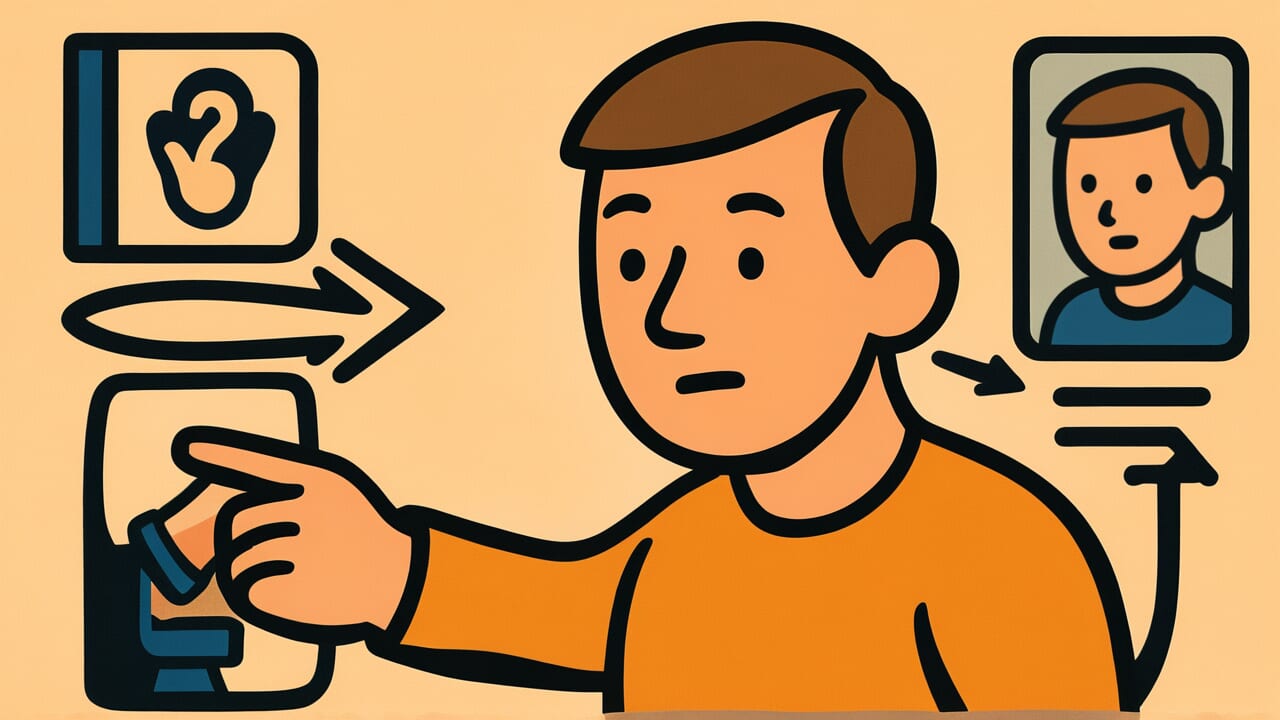How to Read “Part from what you expect and stay with what you don’t expect”
Omou ni wakarete omowanu ni sou
Meaning of “Part from what you expect and stay with what you don’t expect”
This proverb describes the unpredictable nature of human relationships. You separate from the person you hoped for and end up with someone you never expected.
It especially applies to romance and marriage. The person you strongly desired doesn’t work out. Instead, you build a deep connection with someone you never even considered. This is one of life’s ironic twists.
People use this expression when talking about the mystery of human connections. It speaks to how life doesn’t go according to plan. Your will and expectations alone don’t determine relationships.
True happiness often hides in unexpected encounters and developments. Even today, people use this saying when someone’s dating efforts fail, but they meet their soulmate in a surprising place.
The human heart is fickle. Connections between people are mysterious. This proverb conveys a fundamental truth about life.
Origin and Etymology
No clear written records explain the origin of this proverb. However, the structure of the words offers interesting insights.
Notice how the word “omou” (to think/expect) appears twice. The first “omou” expresses active will—to expect or desire something. The second “omowanu” is the negative form—to not expect or not even consider. This contrast creates the core of the proverb.
The pairing of opposite verbs is also striking. “Wakareru” (to part) and “sou” (to stay together) represent the two most basic states of human relationships. Separating and coming together.
This structure concisely shows life’s unpredictability. People likely used this saying among common folk from around the Edo period.
It was often spoken about marriage and romantic relationships. People back then experienced the same mystery of human connections that we do today.
Our ancestors expressed the peculiarity of relationships in just a dozen characters. Relationships don’t follow our will or plans. The wisdom to capture this truth so simply is remarkable.
Few expressions describe the movement of the human heart and life’s irony so concisely.
Usage Examples
- I broke up with the person I loved so much, and now I’m marrying someone I thought was just a friend. It’s truly “part from what you expect and stay with what you don’t expect.”
- She didn’t get into her first-choice company, but apparently found her dream job at the backup company she applied to. This is exactly “part from what you expect and stay with what you don’t expect.”
Universal Wisdom
This proverb has been passed down for generations because it captures a universal truth. Everyone experiences the gap between human plans and reality.
We constantly imagine the future. We live wishing to become this or be that. In relationships especially, we picture an ideal partner and search for that person.
But reality betrays those expectations more often than not. Why does this happen?
Because humans don’t even fully understand themselves. What we truly need and what we think we want are often different things. The ideal we imagine in our heads doesn’t match what our hearts actually seek.
That’s why unexpected encounters can change our lives.
Looking deeper, this proverb also warns against human arrogance. Thinking we can control everything according to our will might be human presumption.
Life involves chance and fate—forces that reason cannot explain.
Our ancestors didn’t lament this unpredictability. Instead, they accepted it as what makes life interesting. They knew that things not going as planned actually opens doors to new possibilities.
We often realize later that a failed plan was actually the path to the best outcome. This proverb teaches us about life’s mysterious nature.
When AI Hears This
Looking at human attention as a cognitive resource through economics reveals an interesting paradox. When you strongly think “I want to be with this person” in romance or relationships, your brain invests massive attention resources into that target.
But attention has opportunity costs. If you use 80% of your attention on Person A, only 20% remains for other possibilities.
Economics has the law of diminishing returns. As you keep increasing investment in the same target, the results you gain gradually decrease. The same applies to romance.
Thinking only about someone, checking message replies repeatedly, and over-analyzing their behavior actually loses opportunities for natural relationship building. This is over-investment of attention.
Meanwhile, the “unexpected” person costs almost zero attention. Then something strange happens. Your brain can process surrounding information broadly and shallowly with surplus resources.
In this diversified investment state, the probability of detecting chance encounters and unexpected compatibility increases. For example, suddenly feeling attracted to a coworker you see daily happens because no target monopolizes your attention.
You could unconsciously evaluate their appeal cumulatively.
In other words, this proverb demonstrates cognitive resource allocation economics. It shows the high opportunity cost of concentrated attention and the high search efficiency of distributed attention.
Lessons for Today
This proverb teaches modern people the importance of courage to let go of attachment. You might have a wish you desperately want to fulfill right now.
But when that wish doesn’t come true, it’s not failure. A path to something better might be opening.
Modern society emphasizes setting goals, making plans, and achieving them. Of course that’s important. But we also need flexibility to accept unexpected developments.
Don’t lament when things don’t go as planned. Try seeing it as a new possibility.
Especially in relationships, clinging too tightly to an ideal checklist might make you overlook a wonderful person right in front of you. Value the feeling of whether you’re comfortable together, rather than conditions and plans.
Life can make you happy in ways beyond your imagination. Even if you don’t understand now, the day will come when you look back and realize everything was for the best.
So don’t fear when things don’t go as expected.



Comments